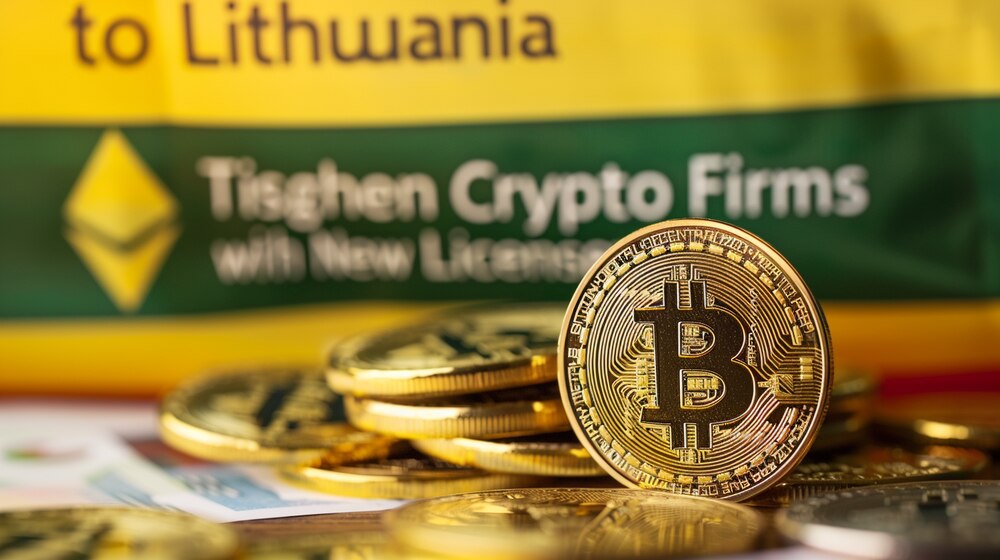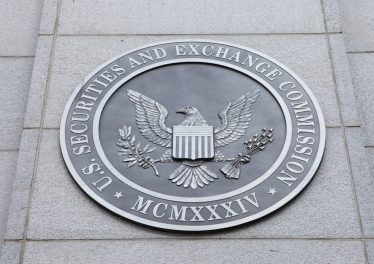Lithuania is set to introduce a new licensing process for cryptocurrency companies operating within its territory.
According to Bloomberg, this initiative marks a considerable change in the nation’s regulatory framework concerning the crypto industry. The expected outcome of this move is a decrease in the number of crypto firms due to the stringent criteria required for obtaining a license.
New Regulatory Framework
Regulatory changes are headed by the Bank of Lithuania, where Simonas Krepsta, a central bank board member, provides the licensing procedure information. The project is scheduled to start shortly, and it is expected to be accomplished in June 2025. Firms that do not receive the whole license will have no other choice but to shut down their businesses in Lithuania. This step is poised to change the look of the country’s crypto sector and, hence, the benchmark of regulatory compliance and operational transparency.
Over the years, Lithuania has become one of the major players in the fintech sector. It is particularly favorable for startups in the field of financial technology, including those in the crypto space. Registration of famous companies like Revolut Ltd. reinforces Lithuania’s appeal as a center of fintech invention.
However, the growth of more than 580 crypto asset companies, some of which operate without regulation, makes it imperative to have the regulation measures reviewed. The new licensing requirements are an indication of the increased need for enhanced regulation, especially in money laundering threats and investor protection.
Conformity with International and EU Standards
Lithuania’s initiative to adopt stricter regulations for companies working with cryptos is consistent with international tendencies in controlling the crypto market. Some jurisdictions like Singapore, Hong Kong, and Dubai have already developed comprehensive regulatory frameworks addressing key questions of money laundering and investor protection.
Further, the forthcoming Markets in Cryptoassets (MiCA) regulation of the European Union, which is anticipated to be effective as of January 2025, will bring a uniform regulatory approach to crypto activities in the EU member states. The refurbishment of the regulatory network for crypto corporations in Lithuania is a trial to adjust to the MiCA and demonstrate that the country is committed to the creation of a clean and safe environment for operations involving cryptocurrencies.
Lithuania is working on legislation that is adapted to the crypto activities within its jurisdiction in the wake of the general European regulatory changes and is aimed at improving its crypto regulatory framework. This involves giving the Financial Intelligence Unit the power to supervise corporate registrations and introducing a pre-assessment procedure prior to licensing. Such legislative initiatives evidence Lithuania’s commitment to creating a legitimate and safe crypto market, thus guaranteeing the market’s future and protection of investors.
- Bitcoin Falls to $65K as Mt. Gox Transfers $2.8 Billion BTC to External Wallet
- News of Marathon Digital’s $138 Million Fine for Breach of Non-Disclosure Agreement Triggers a Bearish 2.5% of Its MARA Stock
- Are $530M Bitcoin ETF Inflows a Blessing or Caution?
- Metaplanet Teams with Hoseki for Real-Time Bitcoin Holdings Verification
- 10 Best Meme Coins To Invest in 2024
- Building Secure Blockchain Systems: An Exclusive Interview with ARPA and Bella Protocol CEO Felix Xu
- Building The “De-Facto Crypto Trading Terminal”: An Exclusive Interview with Aurox CEO Giorgi Khazaradze
- Building a New Global Financial System: An Exclusive Interview With Tyler Wallace, Analytics Head at TrustToken
- “Solana is the Promised Land for Blockchain” — An Exclusive Interview with Solend Founder Rooter
- El Salvador: Where The Bitcoin Revolution Begins With A Legal Tender

 Why Trust Us
Why Trust Us







